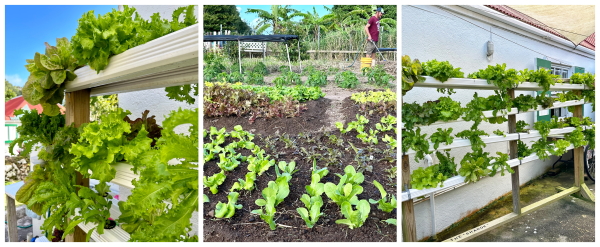 SABA:--- The Public Entity Saba is launching a pilot project to assist small traditional farmers and people active in backyard farming with the growing of fresh produce.
SABA:--- The Public Entity Saba is launching a pilot project to assist small traditional farmers and people active in backyard farming with the growing of fresh produce.
Traditional farmers and backyard farmers, people growing fresh produce on a small scale at their homes or on a piece of property, are facing a number of challenges, such as the (occasional) lack of water, and the cost of seeds, tools, and fencing. The goal of this pilot is to assist people to overcome some of these challenges in order to stimulate agriculture.
The Public Entity Saba sees the importance of becoming more self-sufficient in the future, especially considering the increasing costs of living. Growing produce locally also has the advantage that it is healthier and fresher than imported produce. Backyard farming became especially popular in Saba during the COVID-19 pandemic.
Reimbursement
People who are already active in traditional farming and backyard farming can receive reimbursement for certain products required for their vegetable gardens, like seeds, manure, fertilizer, hoses, and garden tools. This group of farmers can make use of a reimbursement form that has been developed and which can be requested at the Agriculture Department of the Public Entity.
For people who have not started farming and who are interested in doing so, the Public Entity Saba will soon launch workshops and make starter kits available. This initiative is scheduled to start in May. The traditional/backyard farming pilot with the reimbursement form continues until mid-August or until the available budget is depleted.
The traditional/backyard farming support pilot is funded by the Public Entity Saba. The Public Entity also funds the pilot project to support animal husbandry and fisheries which involves a number of reimbursements to offset the high costs that livestock owners and commercial fishermen have to import food. This project too aims to contribute to local food production.
The Public Entity intends to seek project funding from the Nature and Environmental Policy Plan (NEPP) to extend and expand the possibilities that are now offered through the traditional/backyard farming support pilot.










